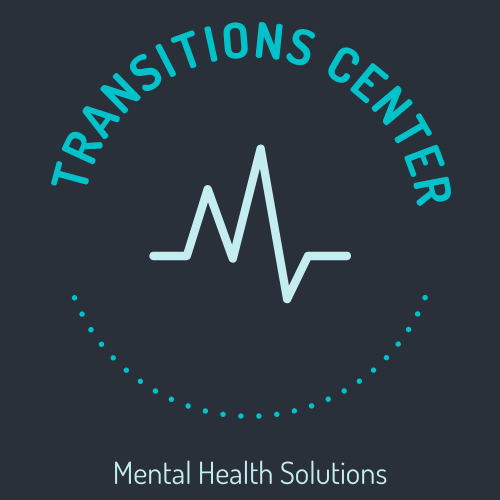Stress has become an inevitable part of modern life. From the demands of work to personal responsibilities, we often find ourselves overwhelmed and unable to cope with the pressures that surround us. The negative impact of chronic stress on our physical and mental well-being is well-documented, but what if there was a way to transform our relationship with stress? Enter biofeedback therapy – a revolutionary approach that empowers individuals to harness their body’s responses to stress and achieve greater control over their overall well-being.
Biofeedback therapy is a non-invasive technique that allows individuals to monitor and gain insight into their physiological processes. By using sensors to measure various bodily functions such as heart rate, muscle tension, skin temperature, and brainwave activity, biofeedback devices provide real-time feedback to the individual. This information serves as a tool for self-regulation and enables individuals to consciously influence their physiological responses to stress.
One of the key principles of biofeedback therapy is that knowledge is power. By providing individuals with detailed information about their bodily responses, they become aware of the subtle changes occurring within their bodies in response to stress. This awareness is crucial because often we are not fully conscious of the physiological signs of stress until they manifest as physical symptoms or emotional distress. Through biofeedback, we can recognize the early signs of stress and take proactive measures to counteract them.
Biofeedback therapy offers various techniques to help individuals modulate their stress responses effectively. For example, if the biofeedback device shows an increased heart rate during a stressful situation, the individual can employ relaxation techniques such as deep breathing exercises or progressive muscle relaxation to bring their heart rate back to a more optimal level. By practicing these techniques repeatedly, individuals can retrain their body’s responses and become more resilient to stress over time.
Beyond stress reduction, biofeedback therapy has shown promise in managing a wide range of conditions such as anxiety disorders, chronic pain, hypertension, and even migraines. By learning to regulate their physiological responses, individuals can reduce the intensity and frequency of symptoms associated with these conditions. It’s important to note that biofeedback therapy is typically used in conjunction with other treatment modalities and under the guidance of a trained professional.
One of the advantages of biofeedback therapy is its non-invasive nature. Unlike medications or invasive procedures, biofeedback therapy carries minimal risk and is generally well-tolerated. It empowers individuals to take an active role in their well-being and provides them with a sense of agency over their health. Moreover, the skills acquired through biofeedback therapy are portable, meaning individuals can apply them in various situations and contexts, allowing for long-term benefits.
The use of technology has further expanded the accessibility and effectiveness of biofeedback therapy. Mobile apps and wearable devices now enable individuals to engage in biofeedback sessions from the comfort of their own homes. These tools provide convenience and flexibility, allowing individuals to integrate biofeedback therapy into their daily routines easily. However, it is important to approach these technologies with caution and ensure they are backed by scientific evidence and used under the guidance of a qualified professional.
While biofeedback therapy holds immense potential, it is not a magical solution that will eliminate stress from our lives entirely. Stress is a natural and necessary part of life, and some levels of stress can be beneficial in motivating us and enhancing our performance. The goal of biofeedback therapy is not to eradicate stress but rather to help individuals develop a healthier and more adaptive response to it.
In conclusion, biofeedback therapy offers a transformative approach to managing stress and improving overall well-being. By providing individuals with real-time information about their physiological responses, it empowers them to take control of their stress levels and develop effective self-regulation strategies. With its non-invasive nature and portable skills, biofeedback therapy has the potential to enhance our quality of life significantly. Thanks to the advances in technology, biofeedback therapy is now more accessible than ever before, so individuals can start benefiting from it without much effort or cost. As such, biofeedback therapy should be considered a valuable tool for managing stress and improving overall well-being.
About The Authors
Are you or a loved one struggling with substance use disorder or other mental health conditions? You’re not alone. At Transitions Center for Natural Mental Health Treatments, we understand how complex and unique these issues can be. From physical dependencies to psychological challenges, each case requires a personalized approach. Our team is dedicated to providing top-notch care and support to help you or your loved one overcome these challenges and achieve lasting wellness. With our help, you can learn how to identify warning signs, cope with mental health disorders, and start on the path to recovery. Don’t wait any longer to seek the help you need – contact us today to learn more!
Special thanks to Mary Jane’s CBD Dispensary one of the top CBD online stores. We’re so glad you found our site. You can find your way back to the blog anytime by clicking on our logo at the top of any page or using our site map for a complete list of pages and their associated content. If you want to stay connected with Mary Jane’s CBD Dispensary, we would love it if you could check out their site today! And don’t forget about Facebook and Twitter too – both are great ways to keep in touch with what’s happening at MJCD. Until next time!

